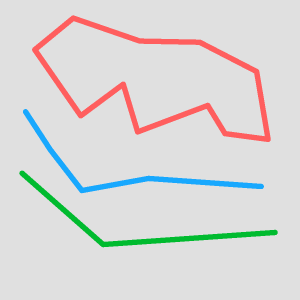Back to Adaptive Vision Library website

You are here: Start » Function Reference » Image Drawing » DrawPaths_Palette
This is Filter Equivalent. This function may be present in generated code, but should not be used in hand-written code.
Draws paths on an image with multiple colors.
Syntax
void avs::DrawPaths_Palette ( const avl::Image& inImage, const atl::Conditional<atl::Array<atl::Conditional<avl::Path> > >& inPaths, atl::Optional<const avl::CoordinateSystem2D&> inPathAlignment, const atl::Optional<atl::Array<avl::Pixel> >& inColors, const avl::DrawingStyle& inDrawingStyle, const bool inForceRgb, avl::Image& outImage )
Parameters
| Name | Type | Default | Description | |
|---|---|---|---|---|
 |
inImage | const Image& | Input image | |
 |
inPaths | const Conditional<Array<Conditional<Path> > >& | { } | |
 |
inPathAlignment | Optional<const CoordinateSystem2D&> | NIL | |
 |
inColors | const Optional<Array<Pixel> >& | NIL | |
 |
inDrawingStyle | const DrawingStyle& | DrawingStyle ( DrawingMode: HighQuality Opacity: 1.0f Thickness: 1.0f Filled: False PointShape: Nil PointSize: 1.0f ) | |
 |
inForceRgb | const bool | True | Filter will convert monochromatic image to RGB if needed |
 |
outImage | Image& | Output image |
Description
The operation draws an array of paths on the inImage using common drawing parameters for all of them. Paths may exceed the image dimensions - those will be drawn partially or not at all, but the filter execution will succeed.
Hints
- Define inPaths. This will be the primitives to be drawn.
- Leave the inColors input not set to have all the primitives drawn with random colors. Set a custom array of colors here to decide explicitly how each of the primitives should be drawn.
- Set inForceRgb to True, if you want to get a 3-channel output regardless of what is on the input.
- Set inDrawingStyle to control quality, opacity, thickness, filling, point shapes and sizes.
Examples

Example usage of the DrawPaths_Palette on an empty image.


